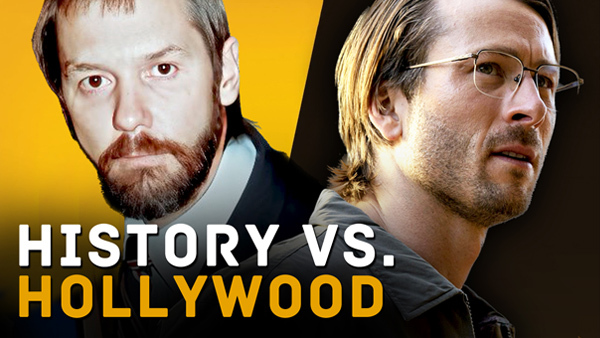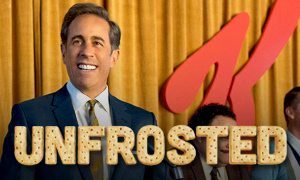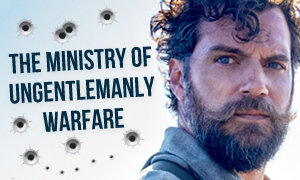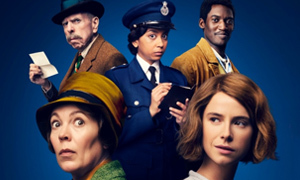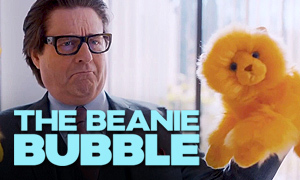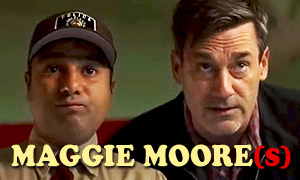The One and Only Ivan: History vs. Hollywood
Ivan Movie Gorilla (CGI)
Computer Generated Character
Ivan the Gorilla
Born: 1962
Birthplace: Republic of Congo, Central Africa
Death: August 20, 2012, Zoo Atlanta, Atlanta, Georgia, USA (complications while under anesthesia during medical exam)
Young Ivan Movie (CGI)
Young Ivan the Gorilla
Where was Ivan the gorilla born?
Ivan, a western lowland gorilla, was born in 1962 in what is now the Democratic Republic of the Congo in Central Africa. Like the character in The One and Only Ivan book and movie, the true story reveals that he likely lived in a troop (a group of eight to ten gorillas), which was headed by one, or more than one, adult male silverbacks.
What is a silverback gorilla?
A silverback is another name for an adult male gorilla. The name comes from the noticeable silver hair on their backs that runs to their waist. The true story confirms that the real Ivan the gorilla was indeed an adult male (silverback).
Did Ivan the gorilla have a sister?
In researching The One and Only Ivan's historical accuracy, we learned that Ivan was captured in the wild along with a female infant that may or may not have been his sister. Such baby gorillas were captured for their market value, a practice that still happens to this day. Both Ivan and his female companion were shipped to the United States in 1964. Earl Leonard Irwin, owner of the B&I Circus Store in Tacoma, Washington, bought the pair from wildlife traders for a total of $7,500. A contest was held to name the young gorillas. B&I selected "Burma" for the female and "Ivan" for the male, requiring that the names start with a 'B' and an 'I'. The store itself had been named for the two men who co-owned it in its early days, M. Leo Bradshaw and Earl Irwin. The store is renamed the Big Top Mall and Video Arcade in the movie.
Sadly, as a result of internal complications from pneumonia, the female gorilla Burma died not long after arriving in Tacoma.
Did Ivan's real-life guardian raise him as part of his own household?
Yes. While the B&I Circus Store's owner, Earl Irwin, had purchased Ivan, it was the man who owned the pet shop at B&I, Ruben Seibert Johnston, who cared for Ivan as a toddler. Before arriving in Tacoma, Ivan had been lost in transit for eight weeks. Upon delivery, he was malnourished and weak. He needed hands-on care if he was to survive. Ruben took the 2-year-old Ivan to his home and raised him there for the next three years (37 months). The gorilla lived alongside Ruben, his wife Lois, and their sons Danny and Larry. Like in the movie, the never-ending companionship and love caused Ivan to flourish while living with the Johnstons. He slept in a bed, took motorcycle rides, and stormed the fridge for food.
In 1967, at the age of 5, The One and Only Ivan true story confirms that the gorilla had become too strong, large, and unruly to live as a domesticated pet in the Johnston household. Ivan had caused an estimated $17,000 in damages. Earl Irwin and Ruben Johnston's solution was to confine Ivan to an enclosure inside the B&I Circus Store. It also provided them with a promotional opportunity for the large discount store. Ivan wouldn't experience the open outdoors again for nearly three decades. -HistoryLink.org
Is Bryan Cranston's character, Mack, based on a real person?
While mostly fictional, Mack seems to represent a combination of the B&I Circus Store's over-the-top owner, Earl Irwin, and the owner of the pet shop at the store, Ruben Johnston, who raised Ivan as a toddler in his family's Tacoma home. These two individuals can be seen in our History vs. Hollywood episode, which is embedded to watch below. To follow all of our latest episodes, subscribe to our YouTube channel.
Did Ivan the gorilla appear in a TV show?
Yes. While conducting The One and Only Ivan fact check, we learned that in addition to appearing in TV ads promoting the B&I Circus Store, Ivan appeared in the January 10, 1967 episode of the television show Daktari. The show followed a veterinarian named Dr. Marsh Tracy, who ran an animal study center in Africa. The episode, which was titled "Judy and the Gorilla," co-starred a chimpanzee named Judy who was a series regular. 20th Century Fox had also offered Ivan's owner, Earl Irwin, a contract to have Ivan star in a Dr. Doolittle movie but the plan never materialized.
What type of cage was Ivan housed in at the B&I Circus Store?
The cage was part of a custom-built trailer that was created by the Columbia Body and Equipment Company. The unique concrete and steel cage had a built-in television, baseboard heating, hot and cold running water, indoor and outdoor living areas, a small pool, an operating table, a fire-sprinkling system, electric hookups, an attached kitchen for preparing food, and fold-down walkways and ramps around the entire trailer. The cage was valued at $60,000. Despite its cost and luxuries, the cage still amounted to a glorified cell and denied Ivan the familiarity of his natural habitat. -Tacoma News Tribune
Are gorillas gentle animals?
Yes. Contrary to how gorillas are normally portrayed in movies and television, they are mostly calm, gentle, and subdued animals, often keeping to themselves. In most cases, they are not aggressive unless provoked. They are herbivores. So, no, they are not going to rip you apart limb by limb. Much of the false perception of gorillas as being ferocious beasts started with the movie King Kong. In reality, they are intelligent and have the ability to express emotions. Gorillas laugh when tickled and cry (without tears) by making sounds when hurt or sad.
Did the real Ivan the gorilla like to paint and draw?
Yes. Painting can be a form of enrichment for animals, much like art and reading are for humans. During our research into The One and Only Ivan's historical accuracy, we discovered that while most gorillas will break and destroy a painting canvas if they are allowed to hold it, Ivan was so gentle that they could give him the brush and canvas. He would finish his painting and then hand the items back to his caretakers.
Ivan's painting is featured prominently in The One and Only Ivan movie and book, and rightfully so. It was the real-life Ivan's painting ability that helped to get him noticed and in turn rescued from his confinement inside the B&I Circus Store. While at Zoo Atlanta, it became clear that red was his favorite color. When given the option, he picked it every time.
Were other animals on display at the B&I Store?
Yes. Ivan the gorilla wasn't the only animal attraction at the B&I Circus Store. However, he was the only gorilla, and unlike in the film, he wasn't in as much contact with the other animals, though there are photos of him with a lion. The owner of the store, Earl Irwin (1909-1973), had a variety of animals on display over the years, including flamingos, a baby elephant named Sammy, a lion, a seal, a pair of chimpanzees, a chicken, a rabbit and more. As a result of Irwin's animal attractions, the store became known worldwide. In addition to animals, the retail store also offered amusement rides (a carousel and other fairground rides), an arcade, water slides and food. B&I promoted itself as the "Biggest Little Store in the World."
By the early 1970s, the Irwins had begun to find new homes for most of the store's animals, except for Ivan.
Did protestors campaign for Ivan's release?
Yes. The One and Only Ivan true story verifies that by the late 1980s, global attitudes towards keeping larger wild animals in such confined spaces had begun to change. Demands for wide-open naturalistic spaces for animals like Ivan were becoming commonplace. In the fall of 1987, the animal rights group Progressive Animal Welfare Society (PAWS) called for a protest and boycott of the B&I Circus Store. "Free Ivan" petitions made their way around Tacoma.
The campaign against the store ramped up in 1991 with the release of the independent film The Urban Gorilla. The 53-minute film, which was narrated by Glenn Close, featured a 3-minute segment that depicted Ivan as a prisoner in his concrete cage. His life was contrasted with that of gorilla Willie B., who had spent 29 years confined to an indoor enclosure but had successfully adapted to the outdoor habitat at Zoo Atlanta. With a declining number of customers, the B&I Circus Store where Ivan was kept filed for bankruptcy in 1992, making Ivan's future even more uncertain. By 1994, Ivan's story had spread throughout the national media. A variety of animal rights and zoological organizations continued to voice their outrage over Ivan's confinement in his enclosure at the mall.
Did Michael Jackson try to buy Ivan the gorilla?
While it was obviously not a part of the Disney Plus movie, there were reports that the late singer tried to buy Ivan in 1992. His plan was to build a habitat for Ivan on his 2,700-acre Neverland Ranch north of Santa Barbara. However, the deal fell through, at least in part due to the fact that he was unable to procure building permits for the habitat.
How long was the real Ivan confined in the shopping mall enclosure?
In real life, Ivan was on display to the public for 27 years in his concrete and steel enclosure at the B&I Circus Store in Tacoma, Washington. After local animal welfare organizations campaigned for Ivan's release, the Irwin family donated him to the Woodland Park Zoo in Seattle in 1994. However, the zoo's gorilla habitat was full and they didn't have the space to keep Ivan, so in October of that year, he was permanently loaned to Zoo Atlanta in Georgia. This is where he would live out the final 18 years of his life. By the spring of 1995, Ivan had become familiar enough with the zoo to experience the outdoors for the first time in 27 years. He roamed in the grass and trees of The Ford African Rain Forest outdoor habitat at Zoo Atlanta. That spring also marked the first time he was around other gorillas in roughly 30 years.
Did Ivan adjust to his outdoor habitat at Zoo Atlanta?
As a result of being confined for 27 years in his enclosure at the B&I shopping mall, Ivan never fully adjusted to being in the zoo's outdoor habitat. He did not like to be outside when it was raining, cold, or wet. Even a little bit of dew on the grass seemed to bother him. His handler at the zoo came up with the idea of giving him burlap sacks of coffee beans. He would repeatedly lay a sac in front of him to step on it in order to avoid the wet grass and get to where he wanted to go. If he didn't want to be outside, he had the option of going indoors. -Zoo Atlanta
Did Ivan make friends with other gorillas at Zoo Atlanta?
Not exactly. Ivan got to be around several female gorillas over the years at Zoo Atlanta, including Molly, Kuchi, Shamba, Kashata and Kinyani. Though he was observed mating with Kinyani, Ivan never sired any offspring.
Despite being around other gorillas, the real Ivan was never able to develop strong social connections with them and seemed largely disinterested. Ivan was unique in that, as a result of his upbringing, he had a lot of human qualities. His most meaningful relationships were always with his human caretakers. The video below explains more about how Ivan struggled to adjust to his new habitat.
How old was Ivan the gorilla when he died?
Ivan was 50 years old when he died on August 20, 2012 while residing in The Ford African Rain Forest at Zoo Atlanta. The average lifespan for a silverback (male gorilla) in a zoo setting is 32-and-a-half years. The average for a female is 37. Ivan lived well-beyond his expected lifespan. By comparison, this is equivalent to a human living to 100.
The One and Only Ivan History vs. Hollywood Episode
Watch our episode that fact checks the Disney gorilla movie starring Bryan Cranston.
Link-to-Learn More:
